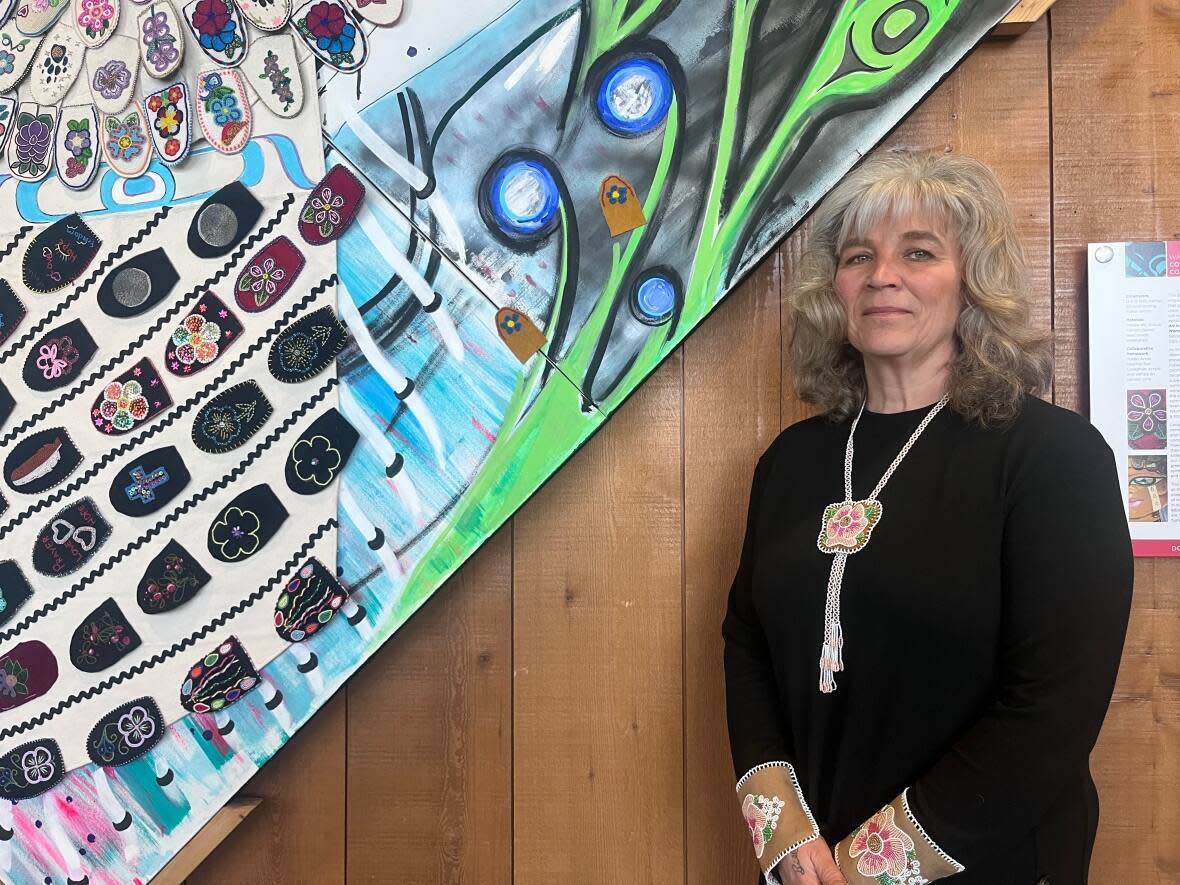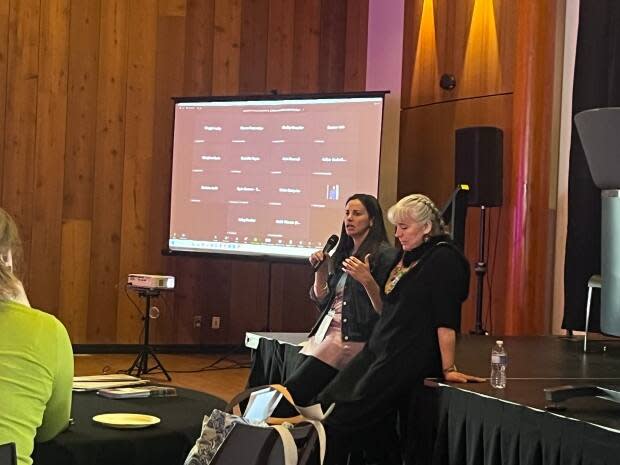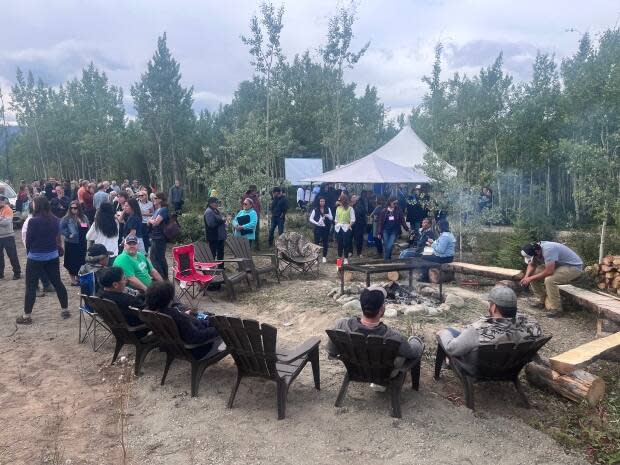4th annual First Nation Education Conference wraps up in Whitehorse

It was day one of the First Nation Education Conference in Whitehorse when Melanie Bennett started to relax and enjoy herself.
Bennett is executive director of the Yukon First Nation Education Directorate (YFNED), which organized the conference. The event is in its fourth year, but she still gets nervous before it all comes together.
"We've been working on this for a year," Bennett said. "And you go, 'OK, my fingers are crossed, everything is gonna go well.' And so far, so good."
Almost 400 people registered for the conference, which kicked off Wednesday at the Kwanlin Dün Cultural Centre. 200 are attending in person, with the remainder tuning in via Zoom.
Educators are in Whitehorse from all over Canada, and Bennett said people from other countries are participating virtually as well.
"It's spring break here, and I thought everybody would be gone," Bennett said. "I'm really happy to say that they did come. It just shows how dedicated our people in the Yukon are to education."
1st year of the First Nation School Board
It's been a year of big change in Yukon's education system.
This is the YFNED'S first conference since the territory's First Nation School Board formally took control of eight schools in the Yukon.The board is an entity separate from the education directorate, but the organizations work together closely.
Bennett says she's proud of what the board's done under the leadership of executive director Melissa Flynn.
"It's an honour to see the seed that has been set, and it's going to grow," Bennett said. "Melissa Flynn is doing a stellar job."

Flynn, who became the new board's executive director a year ago this week, said the first year was full of learning.
She said the board was able to connect with school communities closely, and meet their needs in ways that worked for them. That includes working with a mobile therapeutic unit that's been in communities across the territory to deliver supports like speech language pathology and occupational therapy.
The board also introduced a new literacy program designed to meet kids at their level and provide more one-on-one support.
Three more schools will join the First Nation School Board this year, following a recent referendum.
But the year hasn't been without its challenges, Flynn said, especially since the pandemic has been hard on teachers, students and parents.
"I think people's resilience is really low right now," she said. "Change is difficult and change is scary. And so we came in with a plan to be as supportive as we can."
Language and tradition focus of this year's event
The conference's theme this year is Our Language, Our Culture, Our Way. Breakout sessions focused on a wide range of topics, from on-the-land learning to healing and humour.
Ann Jirousek, who's been teaching in the Yukon since 2000, led a session on storytelling in the classroom.
Jirousek said teachers should think about what stories they're told, and which perspectives might be missing from their classrooms. That means reaching out to local First Nations, and making sure all students see their cultures reflected.
The Yukon is a great place to see that in practice, Jirousek said.
"When I speak to other educators across Canada, some of them don't have access to First Nations elders, they don't have access to land, to go and learn some of these practices," she said.
"A lot of them don't understand this strength that is carried by connecting with people that were here since time began."

Jirousek said the Yukon is at the forefront of many shifts in the classroom, and other parts of Canada will be watching the territory to learn.
Bennett said she hopes out-of-territory attendees leave with lessons they can take with them.
"I hope people just have a really good time," Bennett said. "And they drink the water so that we can leave a little bit of Yukon with them, and they can leave with a little bit of Yukon with them."


